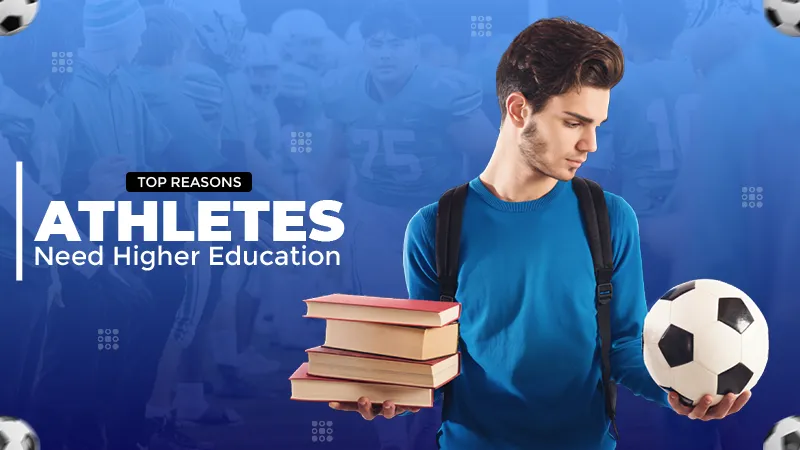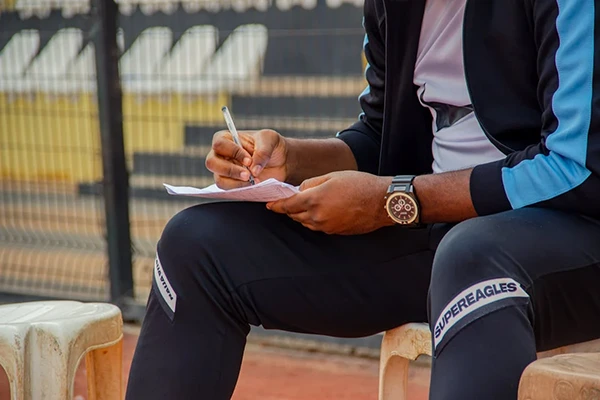

For many athletes, the dream is clear: make it to the big leagues, stand under bright lights, and hear the roar of the crowd. But what happens when the final whistle blows—sometimes earlier than expected? Athletic careers can be unpredictable and often short-lived due to injury, age, or competition. That’s why higher education is a smart, strategic move. Whether athletes are just starting their journey or already playing professionally, earning a degree can open doors beyond sports.
Here are some compelling reasons for athletes to pursue higher education – even if they’re still playing.
1. Education Builds Identity Beyond the Game
Being an athlete often comes with a strong sense of identity tied to performance and recognition in a particular sport. While that identity can be empowering, it can also become limiting if athletes don’t explore who they are outside of the game. Higher education provides a structured and supportive environment where athletes can discover new interests, challenge their perspectives, and develop a broader sense of self. Engaging in coursework, participating in class discussions, and interacting with peers from different backgrounds encourages growth beyond physical skills. These experiences enhance self-awareness and, at the same time, prepare athletes to navigate life beyond competition with confidence.
2. A Backup Plan When the Unexpected Happens
No one can predict how long a sports career will last. Injuries, mental health struggles, or shifts in the industry can all affect an athlete’s ability to compete. That’s why having a backup plan is essential. Higher education offers that safety net, and today, it’s easier than ever to earn a degree while still competing. Virtual courses, such as online athletic administration masters programs, have made it possible for athletes to continue learning no matter where they are.
For example, Southeastern Oklahoma State University offers an online Master of Science in Sports Administration with a general concentration. This flexible program is designed for individuals who want to build careers in athletic administration, coaching, or sports management. With courses in leadership, legal aspects, and financial administration, students gain the skills needed to thrive in sports-related careers after they’ve stopped playing.
Because it’s fully online, athletes can complete coursework while traveling or training—making it an ideal solution for those preparing for life after the game.
3. Scholarships and Financial Support Make It Achievable
One of the most practical benefits of higher education for athletes is the availability of financial support. Athletic scholarships help ease the burden of tuition and make it possible for many to attend college or graduate school without significant debt. In addition to scholarships, universities often offer dedicated resources for student-athletes—such as academic advising, tutoring, and career planning. These support systems are designed to help athletes succeed not just on the field, but in the classroom as well. With the right guidance and financial aid, earning a degree becomes a realistic and rewarding goal.
4. Networking Opportunities with Coaches, Faculty, and Peers
College is about more than academics—it’s also about building connections that last a lifetime. Athletes in higher education have the opportunity to form relationships with professors, coaches, alumni, and peers who can help shape their careers. These networks often lead to job opportunities and internships that can extend far beyond the sports world. Being part of a university community allows athletes to tap into valuable resources and gain access to a wider circle of influence, helping them grow personally and professionally.
5. Building Communication and Leadership Skills
Athletes naturally develop traits like discipline and teamwork through their sport, but higher education helps refine and expand those abilities. In the classroom, students learn how to communicate clearly, argue ideas effectively, and present information in professional settings. These skills are vital for leadership roles, both in and outside of sports.
Through group projects, presentations, and written assignments, athletes gain the confidence to lead conversations, negotiate, and manage teams. These communication skills are particularly valuable for those interested in coaching, athletic directing, or public-facing positions in sports organizations.
6. Enhancing Mental Resilience and Adaptability
Sports already demand mental toughness, but academic challenges add another layer of growth. Juggling classes, deadlines, and exams while maintaining athletic commitments isn’t easy. However, doing both teaches resilience, time management, and adaptability—skills that are just as important as physical strength.
Athletes who pursue higher education learn how to handle stress, solve problems, and adjust to unexpected situations. These are life skills that apply far beyond the court or field. Whether transitioning into a new career, navigating a setback, or taking on a leadership role, educated athletes are better prepared to stay calm and focused when things don’t go as planned.
7. Personal Fulfillment and Lifelong Learning
Even after the cheering fades, the need for growth doesn’t stop. Education isn’t just about career preparation—it’s also about personal fulfillment. Many athletes find joy in discovering new interests, developing skills they didn’t know they had, and pushing themselves intellectually.
Pursuing a degree can offer a deep sense of accomplishment that complements achievements in sports. It proves that they can succeed in multiple arenas and continue learning throughout life. Whether an athlete pursues a second career, starts a business, or simply enjoys the challenge of learning something new, education lays the groundwork for a satisfying and purpose-driven future.
Athletes dedicate years to mastering their sport, but the game itself is only one part of a larger story. Higher education gives them the tools to write the next chapters with intention, stability, and confidence. In a world where the game can change at any moment, education remains a reliable constant. For athletes looking to secure their future and grow beyond the title of “player,” pursuing higher education is not just a wise choice—it’s an empowering one.